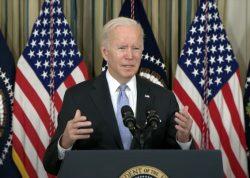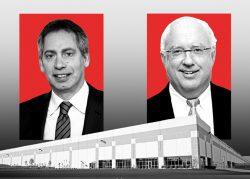On a call where Barry Sternlicht and executives at his Starwood Property Trust touted the strength of their portfolio and the global real estate market, Sternlicht took a minute to sound off on the government’s $1 trillion infrastructure bill.
Sternlicht, chairman and CEO of the real estate investment trust, citing construction costs increasing 2 percent monthly, said the Biden administration–backed bill will push costs up even further for materials such as steel, concrete and piping.
“Add that to the fact that the country seems to have lost a million construction workers and there’s mass labor shortages in construction, and now you’re going to try to fix bridges, roads and tunnels all over the country? Good luck finding people to do it,” Sternlicht said.
“The funny thing is you’re going to have to import all of these workers from some offshore country because they don’t exist in the United States today,” he added.
Starwood, based in Greenwich and Miami Beach, reported $128.6 million in third-quarter earnings, or 44 cents per share, down 15 percent from the same period in 2020, but up about 16 percent from two quarters ago. The REIT reported $302.3 million in revenue for the quarter, up about 5 percent compared to the third quarter last year.
Read more


Starwood created a fund for its Woodstar affordable housing portfolio and sold a 20.6 percent stake at a valuation that exceeds Starwood’s cost by $1.1 billion. Sternlicht said “large offshore investors” purchased the stake, but declined to name them.
Jeffrey Dimodica, president of Starwood Property Trust, said a tax cut for affordable housing signed into law this summer in Florida, and the Florida Housing Authority’s approval of the REIT’s cash-out refinance of the portfolio, contributed to its success. Dimodica predicted that “institutional demand for these assets will keep cap rates in check.”
Sternlicht, who also leads Starwood Capital Group, said that in his 35-year career in real estate, he has never seen such “unprecedented strength” of the multifamily market.
“Affordable housing, you could argue, is better than market-rate,” he said, citing wage increases for entry-level service jobs boosting workers’ purchasing power. “We severely undervalued those investments.”
